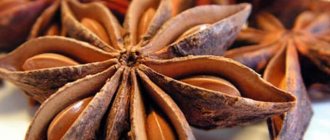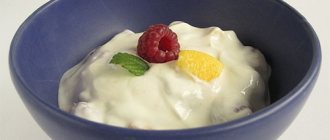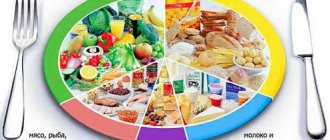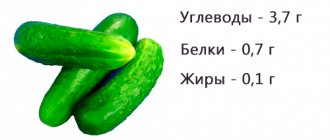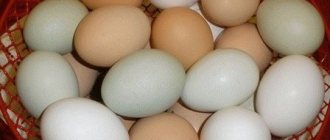Home Diseases and treatment Gastroenterology
28 Jan 2020, 20:00 Anna 1,058 No
Pancreatitis is a rather complex disease. In order to prevent the development of complications, it is necessary to adhere to a certain diet and exclude certain foods from the diet.
If you have this disease, you should consume persimmon with restrictions. Persimmon is a sweet and tasty fruit that is slightly astringent. This is a low-calorie fruit, it perfectly satisfies hunger, it contains a large amount of Vitamins, minerals and many other useful substances.
Is it allowed to eat persimmons?
To normalize the functioning of the pancreas, the patient is advised to carefully monitor his diet. In addition, he is prescribed special medications. It is especially important to follow a strict diet. And if most dishes are replaced by other products, then with fruits the situation is more serious. People especially often ask whether it is possible to eat persimmons with pancreatitis and how to eat them without harming their body.
Persimmon is a fruit that contains many essential minerals and vitamins. To taste, persimmons are classified as tart, astringent fruits. The fleshy, sweet berry is the fruit of the persimmon.
persimmon and vitamins
One fruit contains: vitamin A and C, calcium, iron, as well as a lot of carbohydrates, glucose and sucrose. It strengthens the human body during a cold, so doctors recommend that all people consume the berry several times a week.
This fruit is notable for the fact that it contains no saturated fat or cholesterol. Therefore, it can be called a completely safe product.
Why is the berry dangerous for pancreatitis in children and adults?
Schematic representation of the manifestations of pancreatitis
Pancreatitis is an inflammatory disease that affects the pancreas. It is involved in the digestion process and produces an enzyme that digests food. To break down various types of sugars, insulin is needed, also produced by the pancreas. With pancreatitis, the functions of the gland are impaired, so doctors do not recommend eating foods high in fats and sugars, since the pancreas is not able to produce the required amount of enzymes to break down complex foods. Due to the high content of sucrose, glucose and fructose, persimmons also belong to them. Eating these sweet and juicy fruits increases the load on the pancreas and aggravates its condition.
Another substance contained in persimmons that can impair the functioning of the pancreas is tannin. Unripe fruits have the highest concentration of this substance and cause constipation. Excessive consumption of persimmon can cause acute intestinal obstruction. If pancreatic function is impaired, intestinal motor activity decreases, so it is better to avoid this berry for a while.
Pancreatitis can occur not only in adults. Recently, cases of this disease have become more frequent in children. The nature of pancreatitis in children and adults is different - while in the latter it develops as a result of prolonged consumption of unhealthy foods and alcohol, in the former it is of a short-term reactive nature and is not a separate disease. Children's pancreatitis can occur against the background of any infectious disease, be it food poisoning or a cold. But even in this case, it is better to limit the consumption of persimmons during the period of pancreatic inflammation.
Beneficial features
Persimmon is useful for pancreatitis and has many positive qualities:
- The ripe fruit has an orange color, which indicates that it contains many useful elements. For example, vitamin A. It speeds up the body’s recovery process after illness, strengthens the immune system and prevents the development of cancer.
- It contains beta-carotene. This substance improves vision and accelerates wound healing.
- It contains a lot of potassium salts. They improve the functioning of the cardiovascular system and strengthen the walls of blood vessels.
- The fruit is a valuable source of vitamin C. This vitamin is a powerful antioxidant. It speeds up the patient’s recovery, improves the body’s ability to resist various infections, reduces the appearance of age-related changes in the body, and promotes rejuvenation and tightening of facial skin.
- It contains pectin in large quantities. This substance improves the functioning of the gastrointestinal tract and the diseased organ.
- It has a diuretic effect. As a result, it improves the process of removing toxins from the body. Thanks to this effect, persimmon is compared to activated carbon.
- It contains a large amount of water. Due to this, it has a tonic and refreshing effect on the body.
- This berry reduces the risk of the spread of E. coli and Staphylococcus aureus in the body. This is achieved due to the fact that it has a bactericidal effect on the intestinal microflora.
- It contains magnesium. Due to this, it prevents the development of urolithiasis in the body.
- It contains a lot of iodine and iron. It helps normalize the thyroid gland. Iron reduces the risk of developing anemia.
persimmon and calorie content
In addition, persimmons have low calorie content, so those who watch their weight and eat a lot of them should not worry about gaining extra pounds. Due to the fact that the fruit is very large and fleshy, it is able to quickly and permanently relieve a person from the feeling of hunger.
Having studied the positive properties of this fruit, many citizens, answering the question of whether it is possible to eat persimmon with pancreatitis, say that it only brings benefits.
But along with positive ones, persimmon also has negative qualities, which should not be forgotten either.
Negative influence
Persimmon for pancreatitis is strictly prohibited for the following reasons:
- It contains a lot of sugar. Consuming it in large quantities can lead to the development of diabetes mellitus in a patient, which requires insulin to get rid of it.
- It increases the risk of developing intestinal atony and postoperative adhesions.
- The berry has a fixing effect, which increases the risk of constipation. It is achieved due to the large amount of tannins it contains. Tannins have an astringent effect, which is characteristic of persimmon.
- She is an allergen. If a person has a high probability of an allergic reaction, then he needs to answer negatively to the question of whether it is possible to eat persimmon with pancreatitis.
- Frequent consumption of this fruit can lead to tannins actively combining with gastric juice. This leads to the appearance of stomach stones in the patient and the development of intestinal obstruction, so it is not recommended to eat a lot of it.
If the patient has not only pancreatitis, but also gastritis, it is not recommended to consume ripe persimmons. If a person does not have problems with this organ, then he can only eat ripe fruit, as it has a weak astringent effect and helps improve gastrointestinal motility. But you can use it only after a person has consulted a doctor, been diagnosed and made sure that he has no problems.
Thus, doctors do not recommend consuming persimmons if a patient develops diseases such as pancreatitis and gastritis. Because the harm from persimmons for pancreatitis and gastritis is much greater than the benefits.
Persimmon during remission of chronic pancreatitis
Two months after the exacerbation has stopped, you can eat persimmon. Like other new products, it should be introduced gradually, with the patient independently assessing persimmon tolerance. Start by eating one teaspoon of the pulp of the fruit baked in the oven or microwave, then you can move on to fresh berries. Usually persimmon is consumed separately, as a light dessert, afternoon snack or snack when feeling hungry. If you wish, you can add persimmon pulp to fruit salads.
To avoid causing constipation, choose fully ripe fruits and do not overeat - one piece a day will be enough. If you purchased unripe persimmons, let them ripen at home, leaving them warm for a day. Do not use spoiled (rotten, moldy, etc.) fruits in your diet - they will not only not bring any benefit, but can also provoke an exacerbation.
Patients with pancreatitis should eat only peeled persimmons - the skin of the berries is quite rough and tough, and is difficult to digest. Since it is difficult to peel the ripe fruit, it is cut in half and the pulp is scooped out with a spoon.
Consumption depending on the type of pancreatitis
Remember that pancreatitis is not an independent disease. It embodies many different diseases, each of which has its own characteristic symptoms. Therefore, this fruit can only be eaten with non-acute pancreatitis.
Is it possible to eat persimmons for various types of pancreatitis?
Doctors divide pancreatitis into several main types. It happens:
- spicy;
- reactive;
- chronic.
It must be remembered that in the first two cases, this fruit is prohibited. During these stages, pancreatic enzymes are produced faster. They cannot pass into the duodenum, due to which the pancreas processes its tissues. If you have chronic pancreatitis, you can eat persimmons.
Forms in which use is prohibited
no persimmons
Acute and chronic pancreatitis are characterized by the fact that the patient is strictly forbidden to eat any fruits and persimmons are included in the list of prohibited foods. If you eat fruit during acute pancreatitis, this will lead to a sharp deterioration in the health of even a seemingly healthy person. This happens because the fruit contains a lot of glucose, sucrose and tannin. During the acute period, the patient should follow a special diet. The diet for diseases of the pancreas is based on the fact that in the first days of the disease the patient fasts. After two days, he eats pureed and soft food with plenty of liquid: porridge, broth, puree soups. You can drink rosehip decoction and jelly, water. After 2-6 months, the patient’s list of consumed foods expands. Thus, in case of acute pancreatitis, doctors, answering the question whether persimmon can be consumed, answer categorically “no”. In addition, if a patient has high blood sugar, it is not recommended for him to eat fruit.
The benefits or harm of persimmons for the pancreas
Having studied the information about the composition of this berry and its properties, the question still remains unanswered: is persimmon good for the pancreas or not?
? In fact, the question is ambiguous, since it has great benefits for all human organs, but it can also cause harm. Firstly, it contains a large amount of carbohydrates, which are contraindicated in case of inflammation of the pancreas, as they can disrupt the process of insulin production. Secondly, people who have problems with stool should eat the fruits carefully, since a large amount of tannin can cause acute obstruction. The third negative quality of the fruit is the presence of a large amount of sugars in it, which are contraindicated in diseases of the organ. You should use the product especially carefully during periods of exacerbation.
Thus, we can conclude that persimmon is actually very beneficial for the pancreas and other organs, but it can cause complications in people with health problems. Therefore, before you start eating any product, you should consult your doctor. In addition, you should definitely control the amount of its consumption per day.
